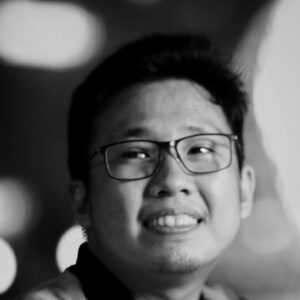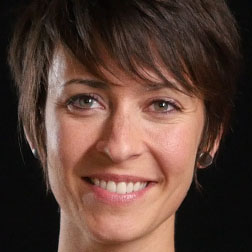I have a confession: When I facilitate, I just wing it.
It might come across as naïve, but this actually comes from a place of deepening my practice. Here’s my attempt to articulate the journey so far in (re)shaping my ‘how’, then (re)discovering my ‘why’.
Many moons ago, when I was first called to facilitate, I tended to over-prepare so I would avoid uncertainty and make sure I covered enough ground. As an external reinforcement, others often expected me to be someone who had most of ‘it’ figured out.
While preparing, I would ask myself questions like:
- What might go wrong and create disappointment among participants?
- How can I avoid looking under-prepared, hence under-serving?
- Did I do enough to make sure no stones were left un-turned?
- How can I make it easy for them?
- What if it doesn’t go as planned?
While the questions were functionally valid, what escaped me was the underlying source of these questions.
My act of preparation was coming more from the avoidance of being seen as an impostor (or a fool!), and that I would eventually be ‘discovered’ and rejected. And rejection was terrifying for me, almost as though a part of me was going to die. So this ‘amygdala hijack’ was self-protective.
So I designed my workshops with elaborate agendas and rigid structures. I wanted to convey to others how I’d done the bulk of the work to figure out the answers before they did, and the participants only had to be led where I wanted to take them. That’s how I made sense of my role as a facilitator.
Everything was under control. It was ‘for their own good’. I had a sense of satisfaction strengthened through this self-aggrandizing justification of “I did a good job, I did my best, I helped.”
Then my familiar approach started to backfire. What I thought would encourage participation became disengagement and prolonged silence. Groups were intimidated, confused, or resigned. I either ignored, denied, or deflected signs of emergence, all in allegiance to my grand plan. I wasn’t prepared to respond gracefully to emergence or metabolizing conflict.
None of this created results that my groups needed. My intentions were good—but they paved the road to hell.
It was tempting to blame the lack of participation from the group—all they needed to do was follow instructions, right?
I started to notice gaps in this way of being as I began to clarify my intention: To help others realize their self-sovereignty and to exercise collective sense-making to direct the group’s attention to a different possible future.
From there, it was as though life confronted me with a reality that was mismatched to the mythology I created. It was tragic to realize that I was getting in the way of the group meeting their emerging needs.
This lesson was bitter, and it presented itself many times (even now) before I began to accept and commit to meaningful change—my relationship with others through and ‘as’ me.
Despite these unpleasant experiences, I made a conscious decision to turn them into valuable learning experiences. Rejection became a sign-post back to me to investigate my inner-landscape. What I previously took for granted in working with myself and the group have become more visible to me.
The dying of the old was necessary to give birth to something wonderful. As Thomas Kuhn once described, the old guard must die to experience a paradigm shift.
And the clarity that came with the metaphorical dying was kind to me. I’m indebted to other playful practitioners whose beginner’s minds & vulnerability radiate their self-mastery and expertise of their craft. By guiding me to return & integrate (re-membering) forgotten sources of wisdom that have been part of me all along, this fellowship became home where confidence and spaciousness rest.
This has changed how I see facilitation. I didn’t learn facilitating, I learned from facilitating.
Circling back to how I prepare and how I conduct myself as a facilitator, preparation has become more of a practice of grounding and cultivating presence.
My preparation is less influenced by fear, though I still feel scared. I am guided by courage and open-mindedness (also, improvisation!). And when the territory reveals itself to be inconsistent with the map I’d initially drawn, it’s best to declare to the group what I have witnessed and trust the wisdom of the collective. In this way, I find more value in immersion over preparation.
By sharing my observations of what I see (from perspective of first-person “I” & third-person “it”), there is an opportunity to acknowledge resonance (or not), and collectively decide to move forward now or later.
I have shifted my sense of control from having a vice grip on the process to an open palm release. This means recognizing and allowing phenomena to unfold naturally, without the desperate urge to intervene or rescue. This does not mean the absence of intervention, as my presence itself is already a form of intervention. Therefore, I cannot be separate from the group, but am fully part of it. What matters is when I intervene and how conscious am I in doing so. Also of equal importance is – to whom am I truly in service of and at what expense?
I’m part of nature – and the uneven and shifting terrain on which I stand, on which we all stand, is a beautiful testament to co-evolution.
A teacher and friend once said, “Facilitation is not making it easy, rather it’s helping others to see how easy it is.”
And “it” can mean the theories of knowledge, practices, or manifestations of energy, their alchemy and transference. The emotional outbursts, the silences, the proclamations, the engagements, the disengagements all contribute to the sameness and difference that co-exist and are ready to be facilitated towards what seems inconceivable. And in the process encapsulates conflict which, when dealt with, can be painful.
How this lands for me is the responsibility to apply loving-kindness to the inevitable suffering and discomfort that arises from the juxtaposition of the past, present, and the future. It’s also about helping others to learn how to suffer.
I also draw similar wisdom from the Agile Manifesto, as hinted in its first sentence (slightly edited): “We are uncovering better ways of (how to suffer) or (coming to being) by doing it and helping others do it.”
It’s just there and waiting to be uncovered. As David Whyte beautifully puts it: “Everything is waiting for you.”
And how could I ever forget what I picked up from the Ten Directions community: “What is coming alive in this space?” Perhaps to add that I find of equal value: “What is dying?”
At last, and at first, my confession has become my liberation. The environment is my teacher, and I just wing it.




1 thought on “My confession has become my liberation”
Oooh… what a juicy read:) Thank you so much Brent for sharing your wisdom. I often feel that tension between preparation and emergence and I love how you outlined your experiences here. Thank you!